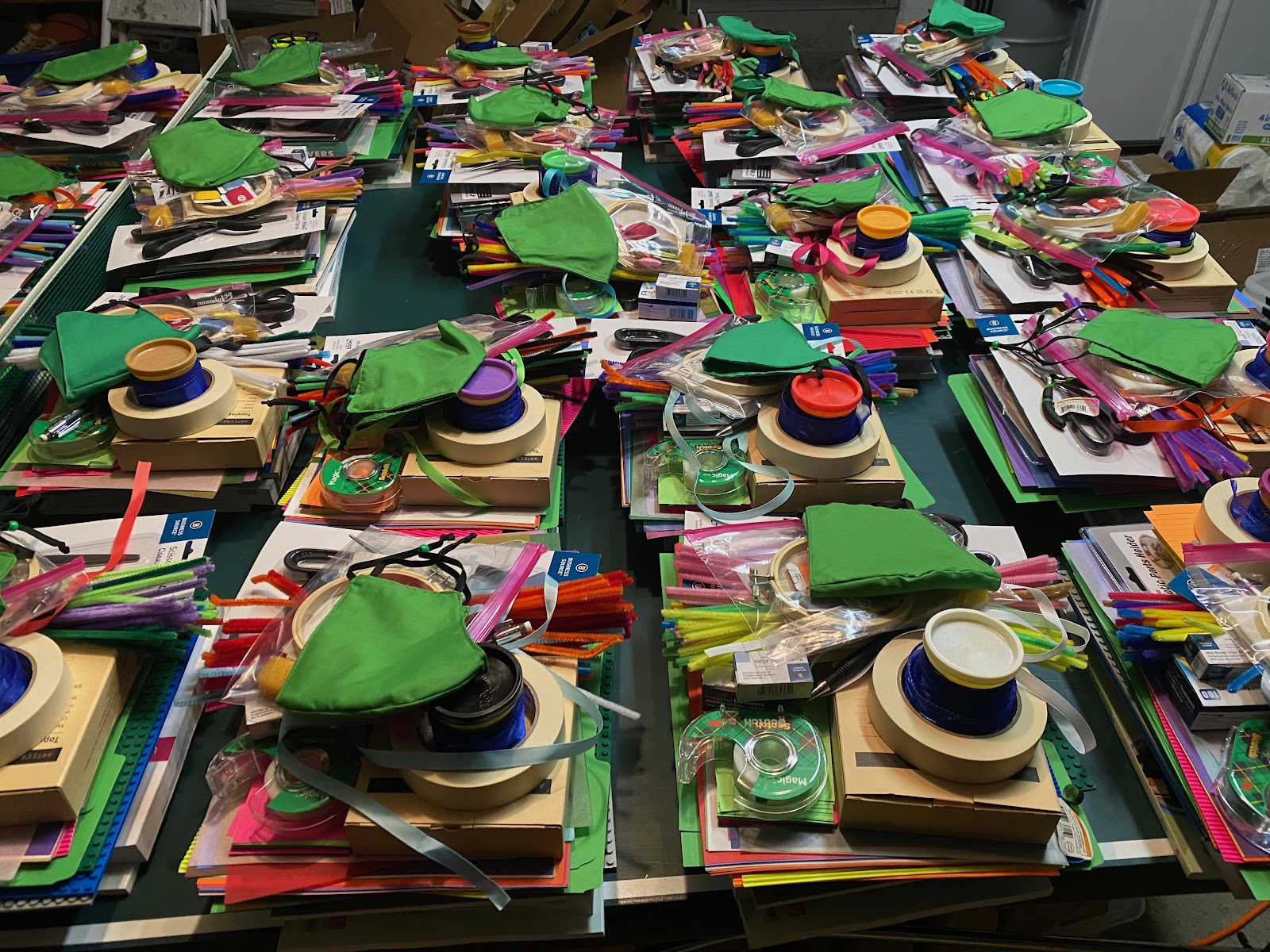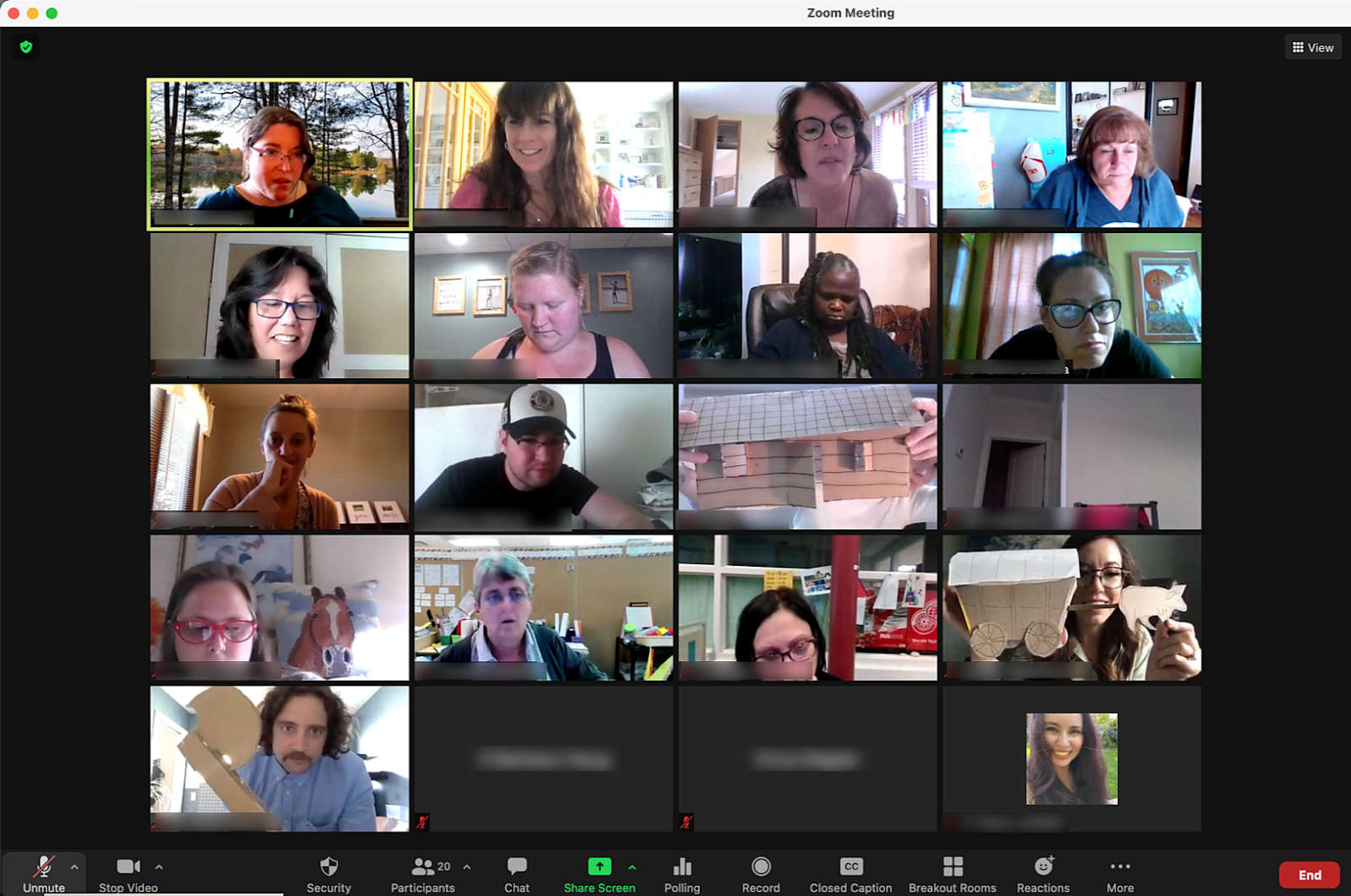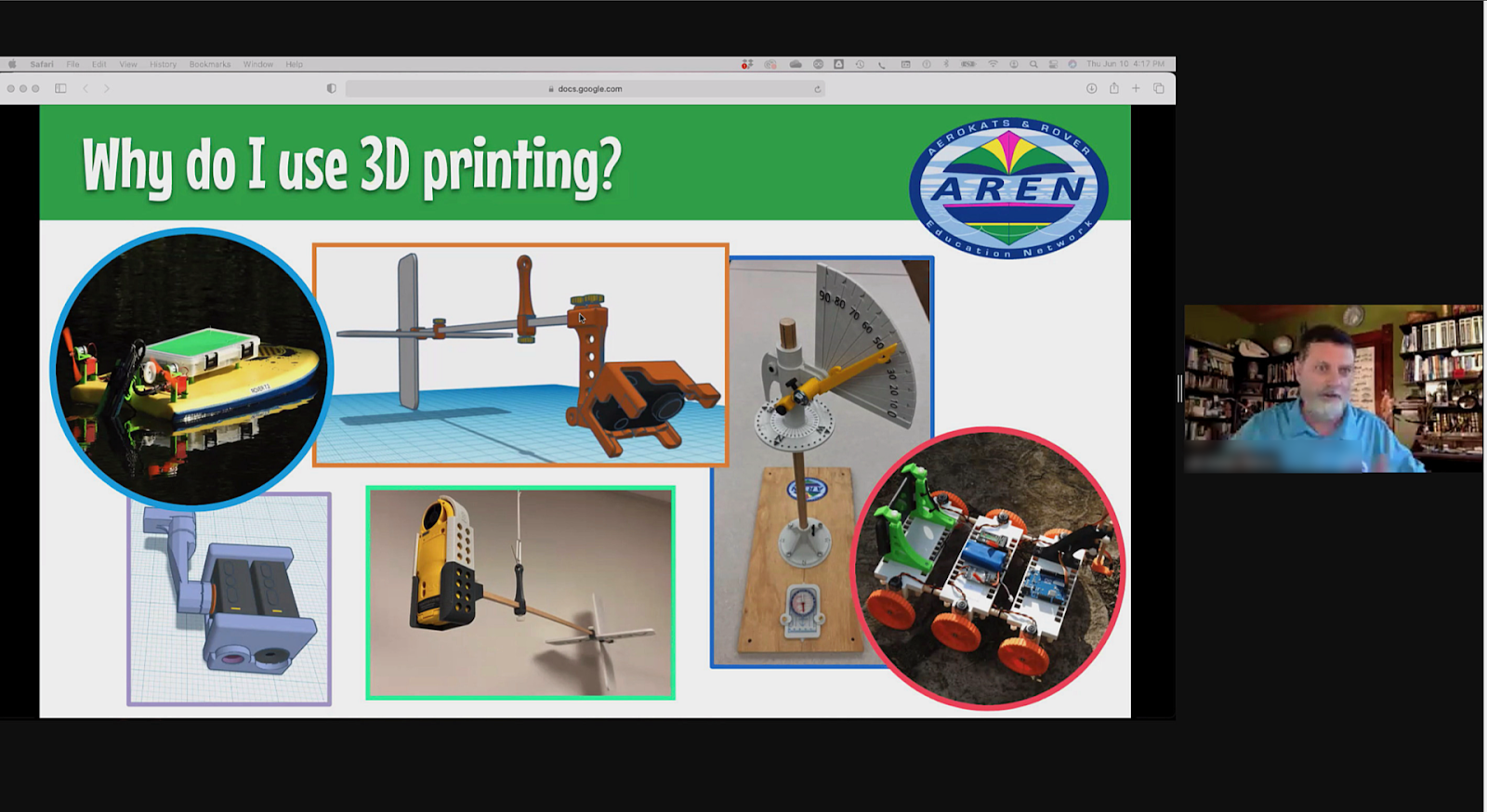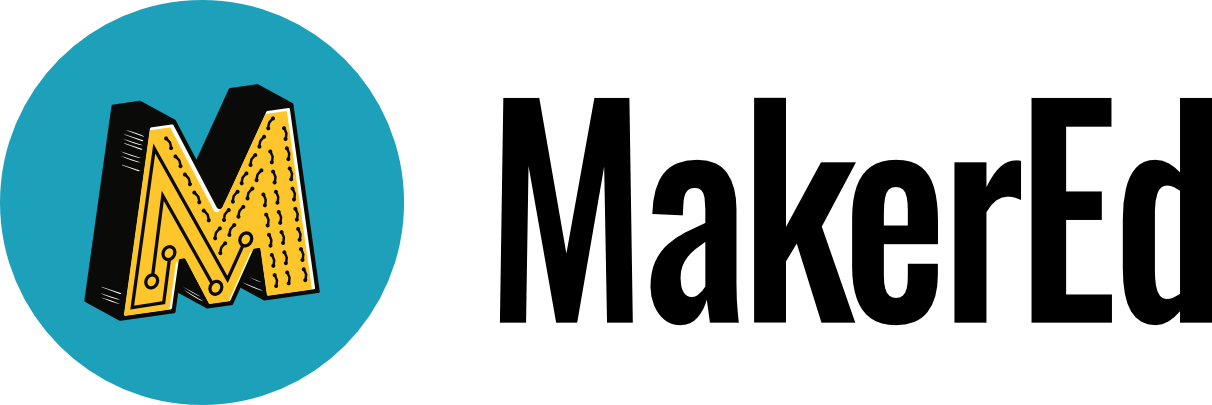This article is part of a series of interviews with our partner organizations in the Making Spaces program. Read more Hub Highlights.
Meet Wayne RESA
What challenges has your organization faced this year as a result of the COVID-19 pandemic? How have you adapted or changed your approach to respond to these challenges?
Because of COVID-19, this year was particularly challenging because we were not able to meet in person for any of our workshops.This especially impacted our maker cohort since maker-centered learning is by design hands-on and collaborative. Originally, we had planned to meet with the cohort every other month for full-day in person workshops with all the materials they would need readily available.
Instead, we had to meet with everyone virtually causing us to rethink everything. We had to take into consideration all of the supplies and resources they would need throughout the year to be able to fully engage in the workshops from home. We then had to gather, organize, and deliver these materials to each person individually.

We also realized that what works for a six-hour in person workshop doesn’t transfer to a six-hour virtual workshop. We had to rethink the time frame and redesign the learning experiences since each person had limited materials and was not in close proximity to anyone else.
Collaboration often happens naturally when you’re sitting next to someone, but with virtual learning, we had to be much more intentional with how we built collaboration experiences into maker activities utilizing breakout rooms.
For example, we explored cardboard creations with a historical twist. The cohort was broken up into groups and given a choice of historical concepts in which they were to select one and not share it with any other group. Each group then went into a breakout room to do some research on their topic.
Once they built up their background knowledge, each member of the group had to use cardboard to create an artifact that showed something about the chosen concept (i.e. Knights of the Round Table – a cardboard sword stuck in a rock, cardboard shield, cardboard helmet). Once we all came back to the main room, one group at a time held their cardboard creations up to the camera for the rest of the cohort to guess the historical concept the group had selected. This elicited a lot of great conversation around the concept and what each artifact represented.

Why did you originally join the Making Spaces program? Does this support look different than you planned for?
Before joining the Making Spaces program, Wayne RESA had previously received grant funding from the Community Telecommunications Network (CTN) to offer professional learning and materials to support STEM and maker-centered learning over a three year time span. Joining the Making Spaces program allowed us to learn much more about promoting and refining the mission, vision, values, and goals of maker-centered learning within different school settings and communities.
We received new ideas, resources, and motivation that we shared with a cohort of educators from 9 different school districts. Becoming a part of the Making Spaces program at the end of the first year of programming highly enriched the offerings we could make available during the second year (2020-2021). Making Spaces gave us tools and resources that set us up for success, particularly during a year that had to be altered significantly due to pandemic conditions.
What is one way that participating in Making Spaces has helped you / your organization achieve its goals?
Participating in Making Spaces helped us clarify our own values and vision as a Wayne RESA maker team. This helped us be more effective in planning activities for the year as we could align our thinking and actions to focus on what was most important.
We felt supported by our own Making Spaces cohort to tackle the year of professional learning in a virtual setting as this was being modeled for us in our learning as well. Gaining access to new ideas, tools, and strategies energized us to share maker-centered learning in ways that were effective, engaging, and enjoyable, even if those experiences were different from our work in person the previous year.
Tell us about a recent “win” or success you’ve had. This could be small or large. Don’t be shy – this is your time to brag!
In 2019, we hosted a Maker-STEM Summit at The Henry Ford that consisted of dozens of breakout sessions and a giant makerspace filled with countless hands-on activities to engage all of the participants. It was a day filled with excitement and energy. We had planned to make this an annual event and were only two weeks from our 2020 Maker-STEM Summit when the world shut down because of COVID-19 and it had to be canceled. For 2021, we were still unable to host an in-person event, but we were determined to not let another year go by without a Maker-STEM Summit to promote maker-centered learning. We again went back to the drawing board to rethink and redesign what this event might look like.
We ended up hosting a virtual summit in the evening that included breakout sessions and creative challenges throughout the week in lieu of the makerspace. We also brought in author/illustrator Kevin O’Malley to share creative ideas and lessons learned from failures in life. The feedback we received was very positive as participants not only had the opportunity to take a deep dive into maker-centered learning, but were able to experience first hand how they might replicate some of these ideas in a virtual environment with their own students.
Are there other makers, organizations, and/or educators in your community whose work you’d like to celebrate?
The Henry Ford has been instrumental in helping us promote maker-centered learning connected to our local community. Members of The Henry Ford educational staff were guest speakers to share their innovation learning materials, including the Habits of an Innovator and Actions of Innovation. We were also fortunate to host our first annual Maker-STEM Summit on the campus of the Henry Ford in 2019.
NASA’s Aerokats and Rover Education Network (AREN) project has offered support through presenting at the Maker STEM Summit and introducing our RESA Maker Cohort educators to making using 3D printing. The AREN project purchased a 3D printer for each of the nine schools involved in this year’s program.

Making Spaces is a 30-month professional learning and capacity building program designed to support local leadership around maker education and build the foundation for lasting, embedded change in pedagogy, community, and culture.
Learn More About Wayne RESA
 Website: https://www.resa.net/
Website: https://www.resa.net/
Location: Wayne, MI
Social Media: Twitter

Leave a Reply